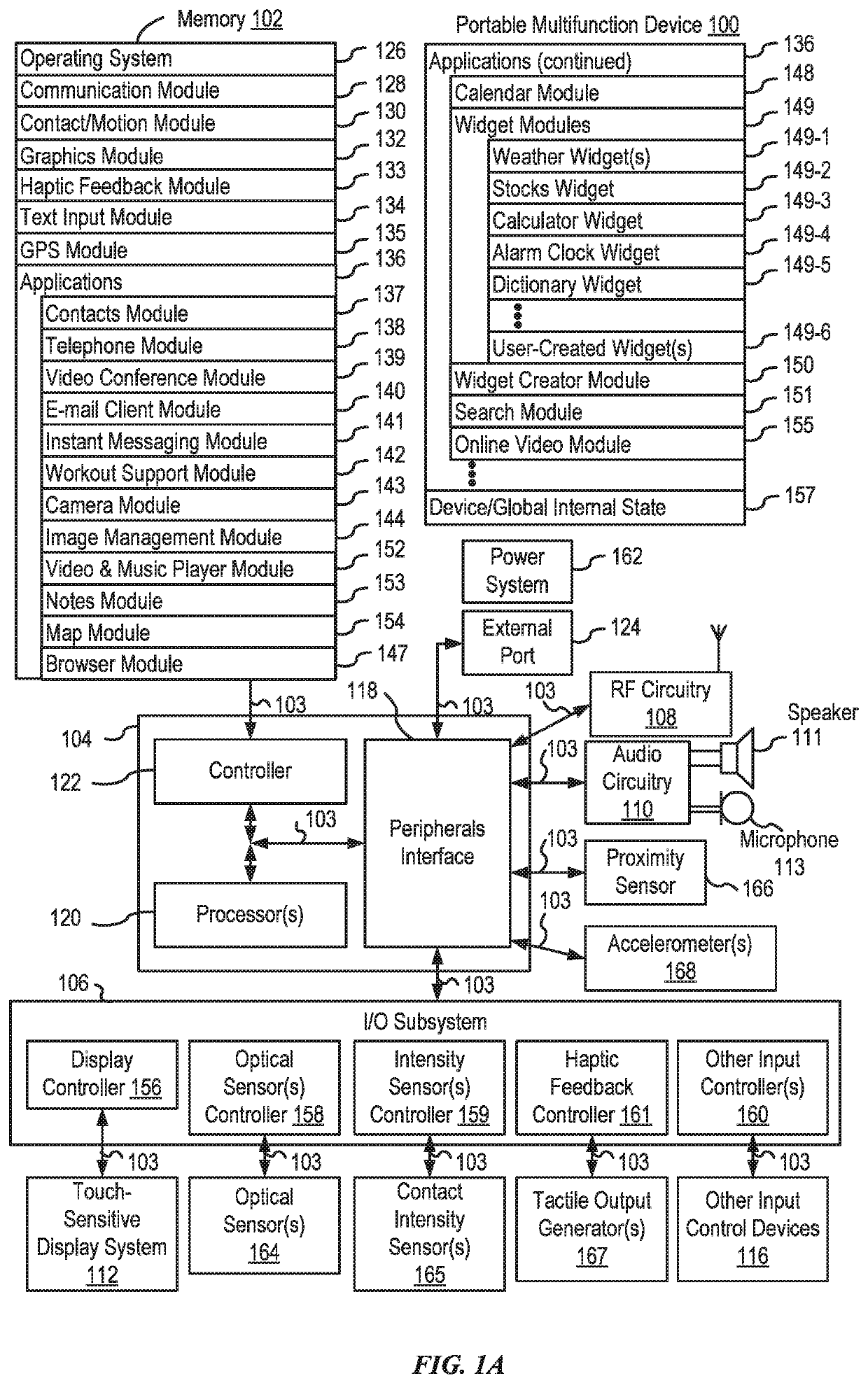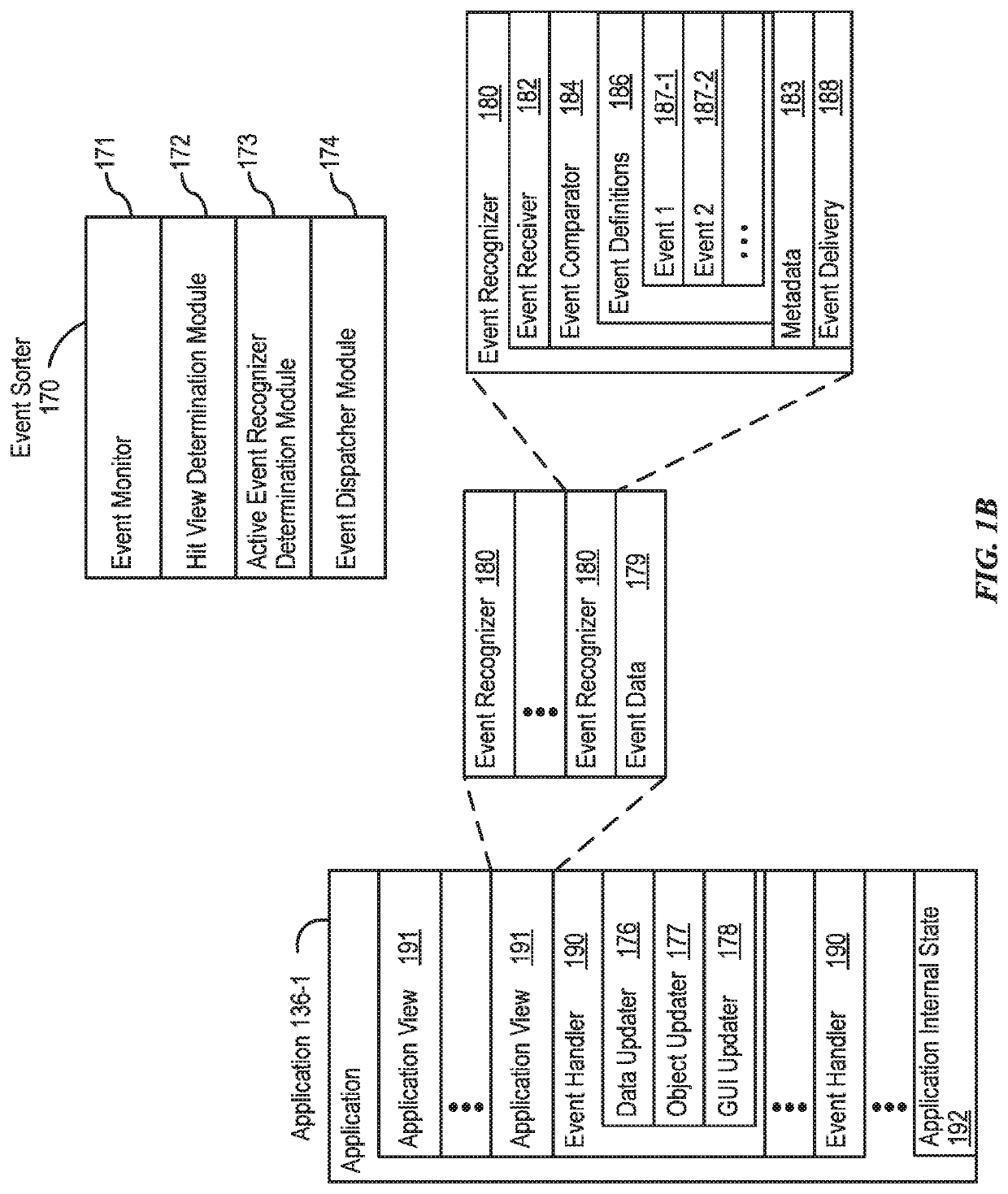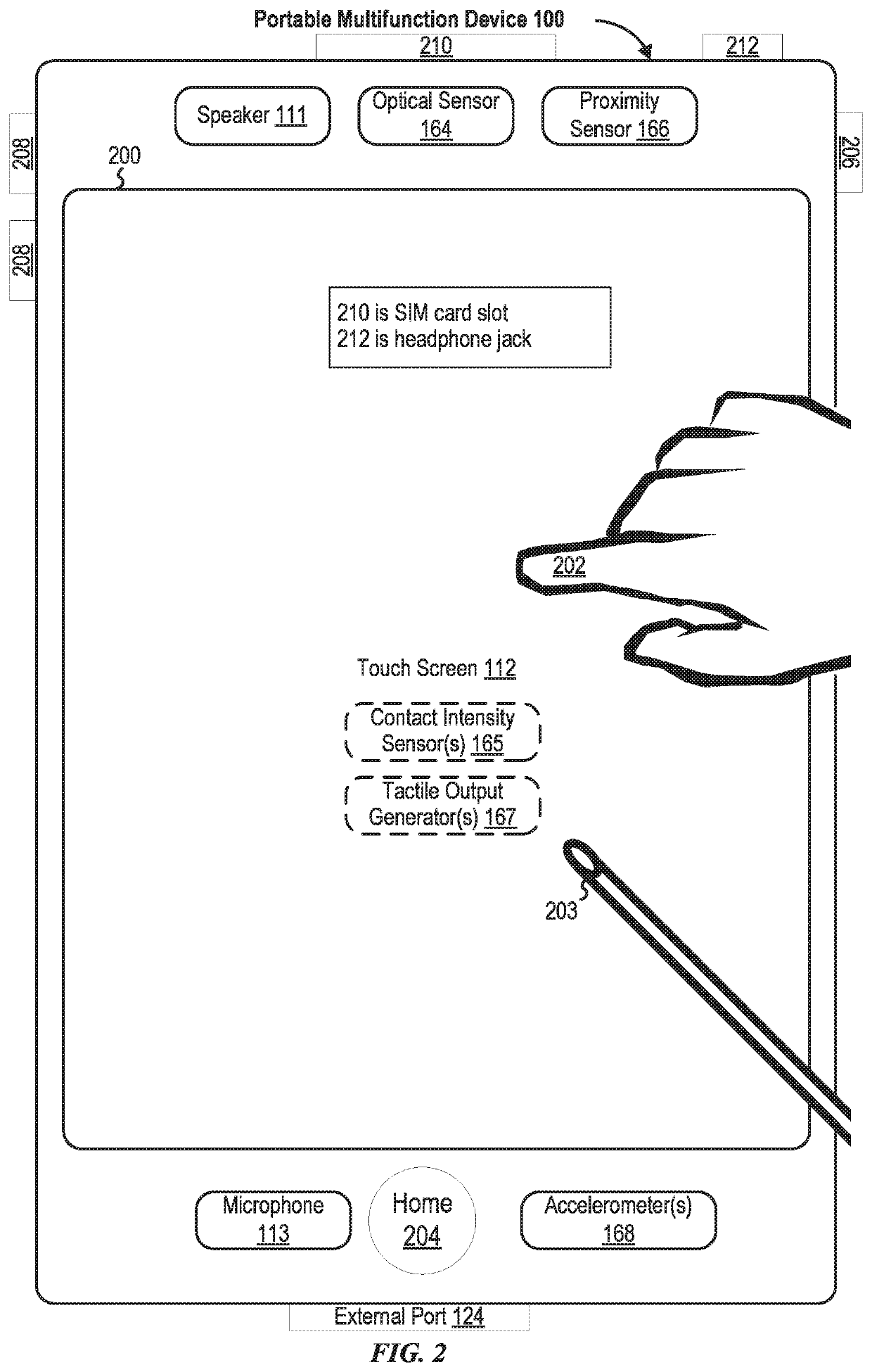Dynamically adjusting touch hysteresis based on contextual data
a dynamic adjustment and contextual data technology, applied in the field of processing inputs at an electronic device, can solve the problems of cumbersome and inefficient gesture disambiguation techniques using electronic devices, inaccurate user inputs, and inability to accurately control the input of users, etc., to achieve fast and efficient methods, increase efficiency, and improve user satisfaction
- Summary
- Abstract
- Description
- Claims
- Application Information
AI Technical Summary
Benefits of technology
Problems solved by technology
Method used
Image
Examples
Embodiment Construction
[0025]The following description sets forth exemplary methods, parameters, and the like. It should be recognized, however, that such description is not intended as a limitation on the scope of the present disclosure but is instead provided as a description of exemplary embodiments.
[0026]There is a need for electronic devices that provide efficient methods and interfaces that facilitate gesture disambiguation for user inputs at the devices. For example, such gesture disambiguation techniques can distinguish a user tap input from a user scroll input and register the input accordingly. As discussed below, contextual data may be used for gesture disambiguation to enhance gesture recognition and processing across a variety of situations. Merely by way of example, when a user is walking or running, the user can provide a tap input on an incoming call affordance displayed at a touch-sensitive display of the device, such as a wearable watch or phone, to pick up a phone call. In some cases th...
PUM
 Login to View More
Login to View More Abstract
Description
Claims
Application Information
 Login to View More
Login to View More - R&D
- Intellectual Property
- Life Sciences
- Materials
- Tech Scout
- Unparalleled Data Quality
- Higher Quality Content
- 60% Fewer Hallucinations
Browse by: Latest US Patents, China's latest patents, Technical Efficacy Thesaurus, Application Domain, Technology Topic, Popular Technical Reports.
© 2025 PatSnap. All rights reserved.Legal|Privacy policy|Modern Slavery Act Transparency Statement|Sitemap|About US| Contact US: help@patsnap.com



